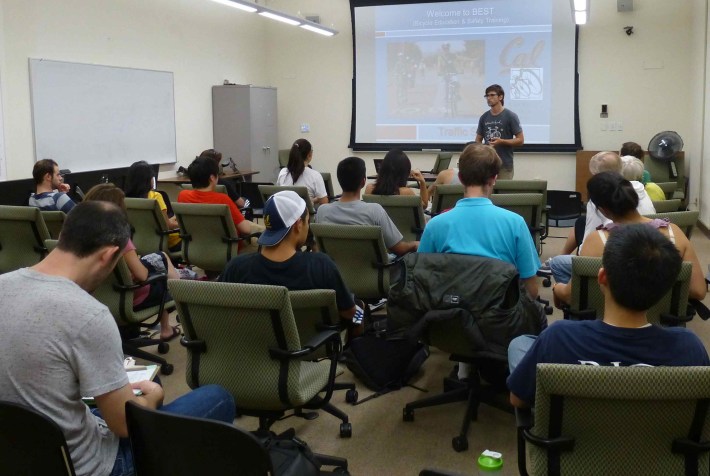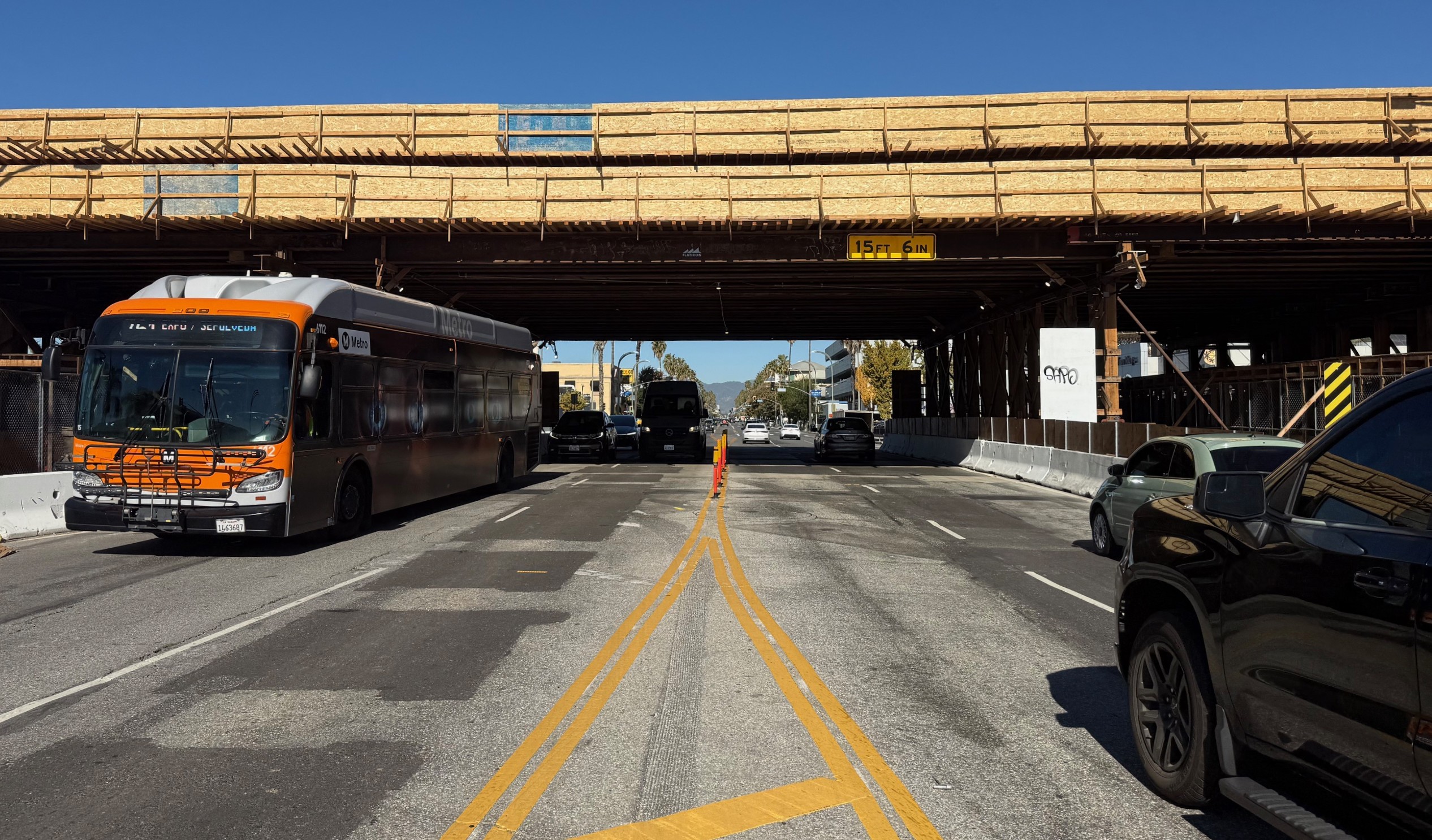
A bill that would allow bicyclists who are ticketed for traffic violations to reduce their fines by attending a traffic safety class was introduced in the California Assembly last week. Assemblymembers Richard Bloom (D-Santa Monica) and David Chiu (D-San Francisco) amended A.B. 902 to repeal a provision in the vehicle code that currently prohibits such diversion programs except in the case of “minors who commit infractions not involving a motor vehicle for which no fee is charged.”
The bill, sponsored by the California Bicycle Coalition, would allow local jurisdictions to create a diversion program and expand it to all bicycle riders, including adults. It could also make it possible to offer all bicyclists, ticketed or not, more opportunities to learn the rules of the road and safe bicycle handling skills.
Robert Prinz sees the bill as an opportunity to increase bicyclist safety and awareness of traffic laws. As Education Director for Bike East Bay, he's in charge of a program that offers free classes on bike skills and safety, including everything from adult learn-to-ride to advanced street skills classes. Bike East Bay also coordinates with the University of California Berkeley police department on a campus-wide diversion program, offering classes in exchange for reduced fines for bicyclists who are ticketed on campus.
But the violations currently eligible for the reduced fines are only those that violate the campus code—such as riding through the “dismount zone” in the central plaza—not the California Vehicle Code.
“It kind of seems silly that only the campus code violations are eligible, especially when things that have a much bigger impact on safety are not included,” said Prinz. “We should be able to turn these tickets into valuable educational opportunities.”
The city of Huntington Beach has also run a bike safety education program for many years, with classes taught by police officers and covering the rules of the road.
Until recently, the city offered these classes to adults in exchange for reduced fines, but had to stop because of the prohibition in the vehicle code. The courses currently offered in Huntington Beach are designed for juvenile offenders who receive a moving or equipment violation like riding on a sidewalk or not wearing a helmet, according to police sergeant David Dereszynski. “Rather than sending them through the court process and paying a fine, we wanted to take the opportunity for them to learn from this. Instead of going to court, the juvenile offender has an option to complete the bicycle safety course where we go over a lot of the misconceptions, myths, and truths about bike riding.”
“This information used to be covered by the schools,” he added. “Now, I don't think they even offer driver education classes anymore.”
A few other jurisdictions, such as Marin County, have diversion programs as well. Bike East Bay ran a successful program for a year in the city of Alameda, but when a new police chief came in, he balked-- seeing the prohibition in the vehicle code as absolute--and ended the program.
The bill is written as a simple code change, giving local jurisdictions discretion on how to handle the details. “This could allow them to intercept tickets before they go to the county,” said Prinz. “They could reduce, or lower, or eliminate the fine—that's entirely up to the individual police departments. And it would only apply to cyclists who are willing to attend classes to have their fine reduced—nobody would be forced to take a class.”
The UC Berkeley diversion classes could be one model for cities. There, bicyclists who are ticketed pay a $50 fee to the UC police department—much less than most moving violation fines—and attend a two-hour bicycle safety course. The police contract with Bike East Bay to teach the courses using instructors certified through the League of American Bicyclists. The course covers the same material as others taught through Bike East Bay, with a few additions specific to the campus code. The classes are made available free to anyone who wants to take them. Prinz estimates that half of the people who attend sign up out of personal interest, not because they got a ticket.
“This is a chance to expand the opportunity to teach bike safety and to bring more regular bicycle education classes to different communities, even if no tickets are written,” said Prinz. “There is a lot of interest throughout the state, and some areas are raring to get working on this once it's a hundred percent above-the-board legal.”
Bike East Bay has a petition in support of creating diversion programs for bicyclists here.
Email tips, alerts, press releases, ideas, etc. to melanie@streetsblog.org.
For social media coverage focused on statewide issues, follow Melanie @currymel on Twitter or like our Facebook page here.






